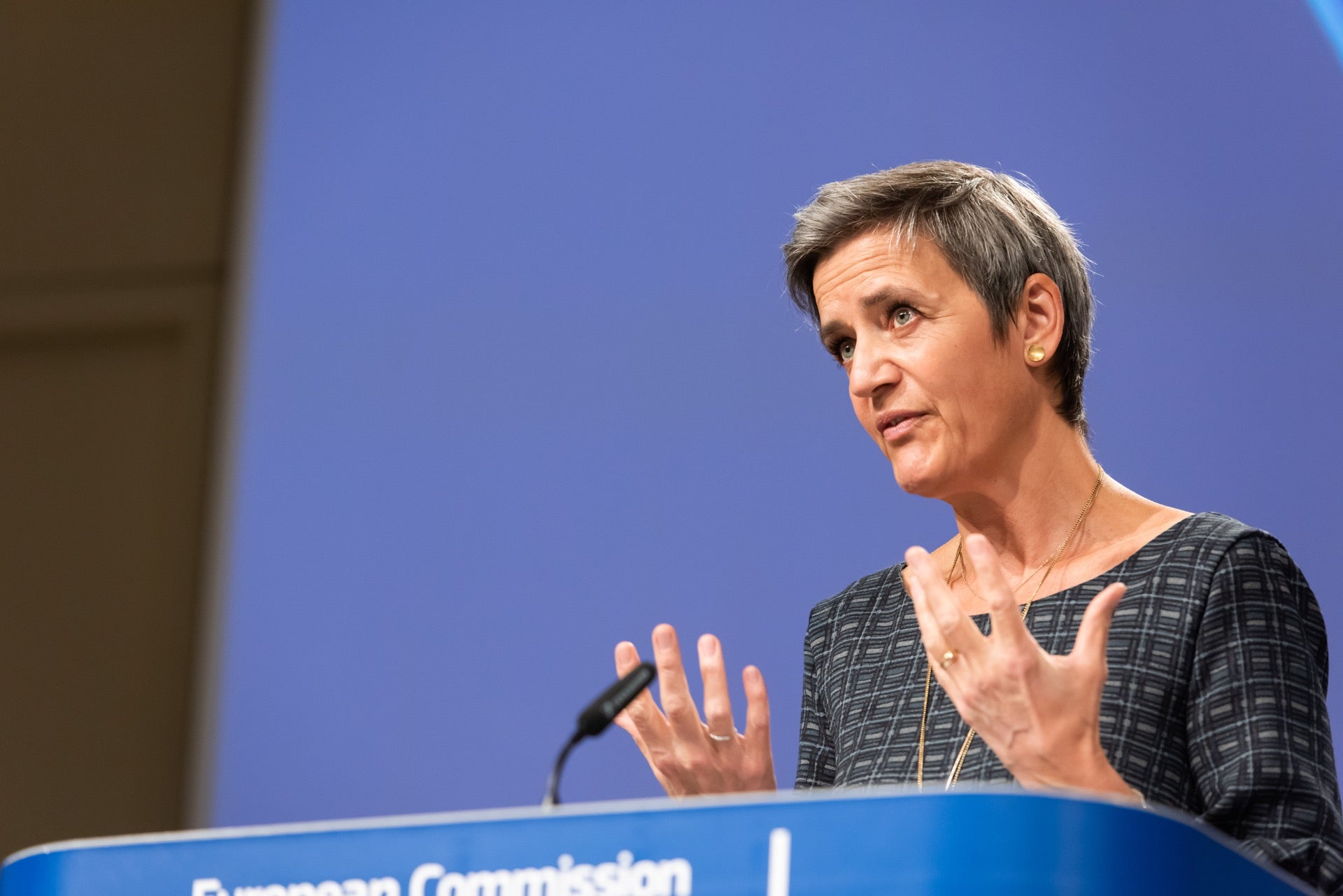
The European Commission has accused Apple of choking competition on its App Store by forcing third-party developers to either agree to unfair rules or risk getting chucked out of the iPhone and iPad ecosystem.
“Apple has a monopoly in the Apple App Store,” said Margrethe Vestager, executive vice-president at the European Commission.
The case dates back to last summer when music-streaming company Spotify issued a formal complaint to the EU against the Cupertino, California company, accusing the tech titan of using its market dominance to force smaller businesses to pay extortionate commissions or not get access to the Apple ecosystem. The complaint resulted in an official antitrust probe by the European Commission.
Now, the investigation has informed Apple of its preliminary findings in an official statement of objections, which is a formal step in the investigation into suspected violations of EU antitrust rules. It essentially provides the accused party – Apple in this case – with an opportunity to respond to the ongoing investigation in writing or by requesting an oral hearing before representatives of the commission.
While no legal suit has been launched yet, the preliminary findings suggest that Apple is using its dominant position to give itself an unfair advantage against rivals to its Apple Music service.
“Our preliminary finding is that Apple is a gatekeeper to users of iPhones and iPads via the App Store,” said Vestager. “With Apple Music, Apple also competes with music streaming providers. By setting strict rules on the App Store that disadvantage competing music streaming services, Apple deprives users of cheaper music streaming choices and distorts competition. This is done by charging high commission fees on each transaction in the App Store for rivals and by forbidding them from informing their customers of alternative subscription options.”
The commission took issue with two rules in particular that it found to be detrimental to customers. “We are concerned that Apple’s rules negatively impact its rivals by raising its cost, reducing their profit margins as well as their attractiveness, on the Apple platform,” Vestager said.
The first rule the probe opposed was that Apple had made the app market more expensive for customers by making it mandatory for app developers to accept the App Store’s proprietary in-app purchase system and a 30% commission on all subscriptions and purchases in those apps. Most music-streaming apps simply transfer that fee to the end users by raising the price, the EU argued. For instance, apps had raised their price from €9.99 to €12.99. “Apple Music is not subject to any of these rules and is offered at a price at typically €9.99 euros,” Vestager claimed.
At the end of last year, Apple announced that it would reduce its 30% cut to 15% for companies earning under $1m.
Secondly, the EU accused Apple’s “anti-steering provisions” of limiting the ability of app developers to inform users of alternative purchasing possibilities outside of apps. While Apple allows users to use music subscriptions purchased elsewhere, its rules prevent developers from informing users about such potentially cheaper purchasing possibilities.
Even though Spotify kickstarted the process, Vestager made it clear that this was not just about a dust-up between the Swedish music-streaming provider and Cupertino, with the European Commission in the middle.
“There are other streaming apps than Spotify. There is Deezer, there is SoundCloud. I’m absolutely certain that there are others out there as well,” Vestager said. “It’s important for a market to stay innovative and competitive that we actually have the chance to see the different rivals and that they are free to make their own decisions.”
Vestager also noted that this won’t be the only probe into the App Store. “But for now, of course, what we want is for Apple to answer to our concerns, and they will have 12 weeks to do so,” she added.
Regulators and lawmakers in the UK, the Netherlands, the US and Australia for example are in the midst of similar probes. Vestager said the European Commission would collaborate with regulators in other countries as the investigation continues.
Apple’s behaviour is also central in the ongoing lawsuit Fortnite developer Epic has launched against the company.
The iPhone maker responded to the probe by doubling down on previous objections against claims that it is dominating the market unfairly.
“Spotify has become the largest music subscription service in the world, and we’re proud for the role we played in that,” an Apple spokesperson said in a statement. “Spotify does not pay Apple any commission on over 99% of their subscribers, and only pays a 15% commission on those remaining subscribers that they acquired through the App Store.
“At the core of this case is Spotify’s demand they should be able to advertise alternative deals on their iOS app, a practice that no store in the world allows. Once again, they want all the benefits of the App Store but don’t think they should have to pay anything for that. The commission’s argument on Spotify’s behalf is the opposite of fair competition.”
The ongoing EU probe is not Cupertino’s only headache. The news comes as Apple warned this week that the global chip shortage could cost it up to $4bn in profit next quarter.







